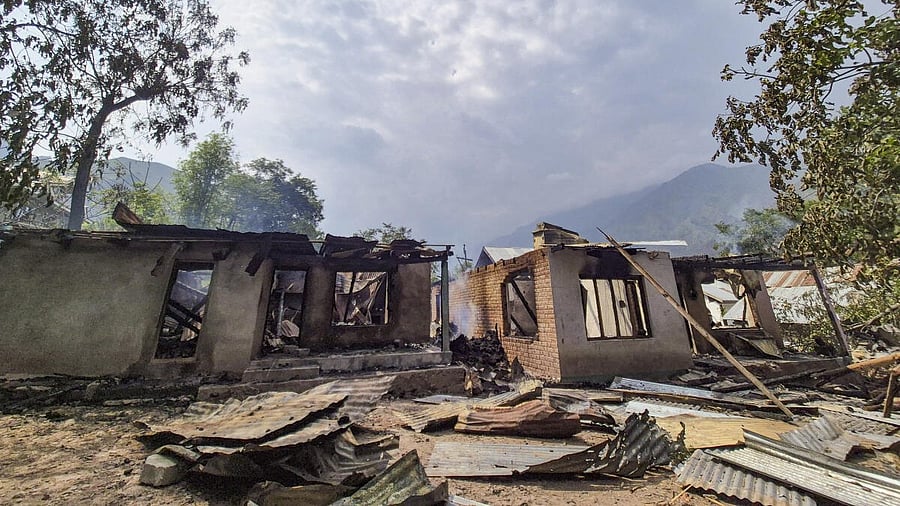
Damaged houses after heavy firing and shelling from Pakistan side at Salamabad near LOC in Uri.
Credit: PTI Photo
Srinagar: Even as guns have fallen silent across the Line of Control (LoC) in Jammu and Kashmir following a sudden ceasefire agreement between India and Pakistan on Saturday evening, fear continues to grip thousands of border residents evacuated from shelling-affected areas.
The authorities have urged citizens not to return to their homes until bomb disposal squads clear the zones of any unexploded munitions. In Pakistan’s line of fire, thousands of border residents, especially those living near defence installations, were moved to safer places in the last week.
An urgent safety notice issued by the District Police Baramulla has warned evacuees that danger still lurks in frontline villages. “Unexploded munitions from Pakistani shelling are still present in many areas,” the notice said, adding that the J&K Police Bomb Disposal Squad is actively working to secure affected zones.
Since Saturday night, villages along the LoC—including Poonch, Rajouri, Uri, and Tanghdar—have witnessed a sudden and welcome silence after days of intense cross-border shelling. The artillery fire and gunshots that once echoed across these regions have ceased, thanks to a truce reached between the two nations.
However, for thousands of shell-shocked villagers who fled their homes, the ceasefire brings little immediate relief. “We are grateful that the shelling has stopped, but returning now could be fatal. We’ve seen what unexploded shells can do,” said Ghulam Din, a resident of Uri currently staying at a relief camp in Baramulla.
Authorities have made it clear that no civilian should attempt to return without explicit clearance from the district administration. “Evacuees must wait for official confirmation before returning to their homes,” the police advisory emphasised. “Your safety is our priority.”
The danger posed by unexploded shells has been a persistent issue along the LoC, especially following intense exchanges of fire. In past incidents, several villagers—often children—have been injured or killed by ordnance left behind.
For now, even as cross-border guns fall silent, the humanitarian crisis caused by displacement continues. Relief camps remain active, and officials are coordinating with police and bomb disposal units to speed up sanitisation.
Until clearance is granted, thousands of villagers wait—caught between a fragile peace and the unseen peril that still lies buried in their soil.